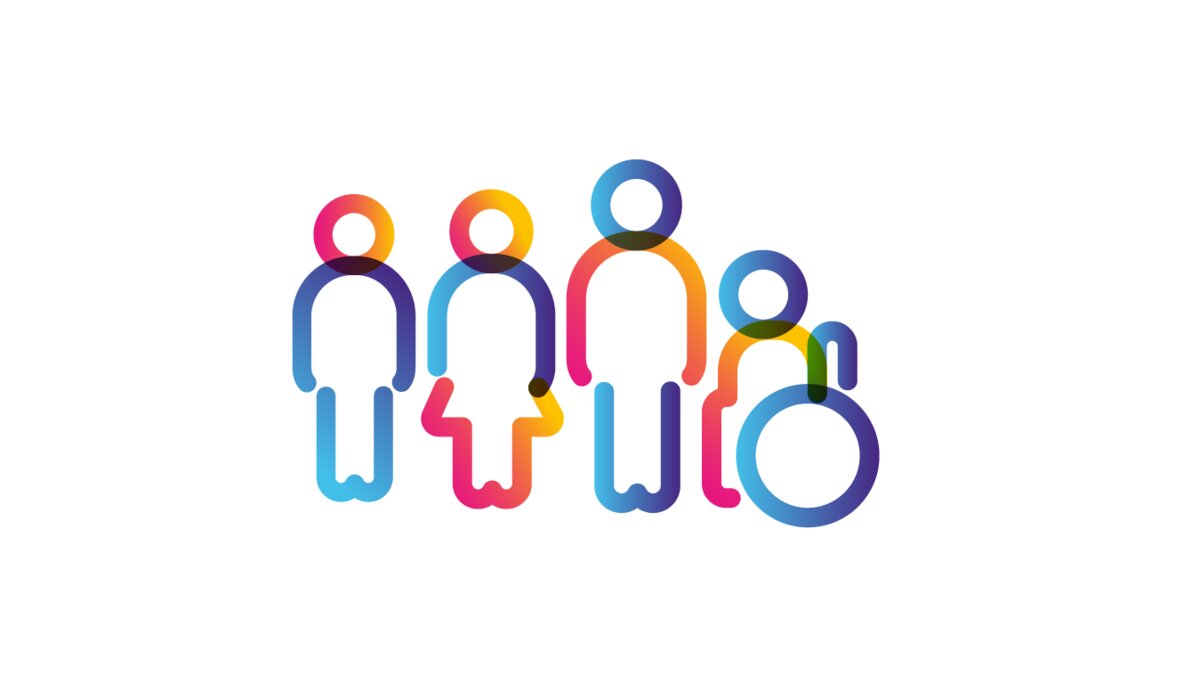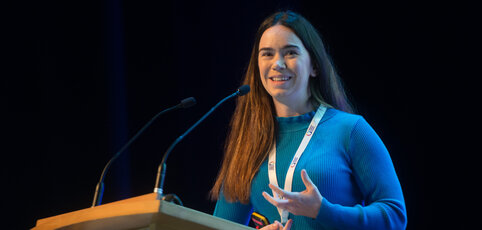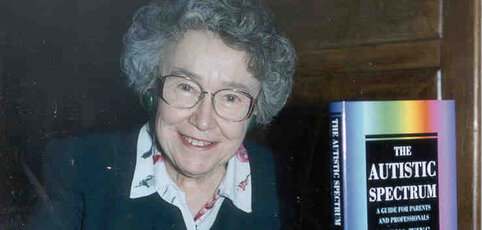
What is autism?
Autism is a lifelong developmental disability which affects how people communicate and interact with the world. One in 100 people are on the autism spectrum and there are around 700,000 autistic adults and children in the UK.
Find out more about autism by watching our film narrated by Alan Gardner, the Autistic Gardener
Being autistic
Autism is a spectrum condition and affects people in different ways. Like all people, autistic people have their own strengths and weaknesses. Below is a list of difficulties autistic people may share, including the two key difficulties required for a diagnosis. Click on the plus sign for more information.
-
Social communicationAutistic people have difficulties with interpreting both verbal and non-verbal language like gestures or tone of voice. Some autistic people are unable to speak or have limited speech while other autistic people have very good language skills but struggle to understand sarcasm or tone of voice. Other challenges include:
- taking things literally and not understanding abstract concepts
- needing extra time to process information or answer questions
- repeating what others say to them (this is called echolalia)
Social interaction
Autistic people often have difficulty 'reading' other people - recognising or understanding others' feelings and intentions - and expressing their own emotions. This can make it very hard to navigate the social world. Autistic people may:
- appear to be insensitive
- seek out time alone when overloaded by other people
- not seek comfort from other people
- appear to behave 'strangely' or in a way thought to be socially inappropriate
- find it hard to form friendships.
Read more about social communication and social interaction challenges here
-
With its unwritten rules, the world can seem a very unpredictable and confusing place to autistic people. This is why they often prefer to have routines so that they know what is going to happen. They may want to travel the same way to and from school or work, wear the same clothes or eat exactly the same food for breakfast.Autistic people may also repeat movements such as hand flapping, rocking or the repetitive use of an object such as twirling a pen or opening and closing a door. Autistic people often engage in these behaviours to help calm themselves when they are stressed or anxious, but many autistic people do it because they find it enjoyable.
Change to routine can also be very distressing for autistic people and make them very anxious. It could be having to adjust to big events like Christmas or changing schools, facing uncertainty at work, or something simpler like a bus detour that can trigger their anxiety.
Read more about repetitive behaviours and dealing with change here
-
Autistic people may experience over- or under-sensitivity to sounds, touch, tastes, smells, light, colours, temperatures or pain. For example, they may find certain background sounds like music in a restaurant, which other people ignore or block out, unbearably loud or distracting. This can cause anxiety or even physical pain. Many autistic people prefer not to hug due to discomfort, which can be misinterpreted as being cold and aloof.Many autistic people avoid everyday situations because of their sensitivity issues. Schools, workplaces and shopping centres can be particularly overwhelming and cause sensory overload. There are many simple adjustments that can be made to make environments more autism-friendly.
-
Many autistic people have intense and highly focused interests, often from a fairly young age. These can change over time or be lifelong. Autistic people can become experts in their special interests and often like to share their knowledge. A stereotypical example is trains but that is one of many. Greta Thunberg's intense interest, for example, is protecting the environment.Like all people, autistic people gain huge amounts of pleasure from pursuing their interests and see them as fundamental to their wellbeing and happiness.
Being highly focused helps many autistic people do well academically and in the workplace but they can also become so engrossed in particular topics or activities that they neglect other aspects of their lives.
Take a look at the Spectrum magazine, written for and by autistic people
-
Anxiety is a real difficulty for many autistic adults, particularly in social situations or when facing change. It can affect a person psychologically and physically and impact quality of life for autistic people and their families.It is very important that autistic people learn to recognise their triggers and find coping mechanisms to help reduce their anxiety. However, many autistic people have difficulty recognising and regulating their emotions. Over one third of autistic people have serious mental health issues and too many autistic people are being failed by mental health services.
-
When everything becomes too much for an autistic person, they can go into meltdown or shutdown. These are very intense and exhausting experiences.
A meltdown happens when someone becomes completely overwhelmed by their current situation and temporarily loses behavioural control. This loss of control can be verbal (eg shouting, screaming, crying) or physical (eg kicking, lashing out, biting) or both. Meltdowns in children are often mistaken for temper tantrums and parents and their autistic children often experience hurtful comments and judgmental stares from less understanding members of the public.
A shutdown appears less intense to the outside world but can be equally debilitating. Shutdowns are also a response to being overwhelmed, but may appear more passive - eg an autistic person going quiet or 'switching off'. One autistic woman described having a shutdown as: 'just as frustrating as a meltdown, because of not being able to figure out how to react how I want to, or not being able to react at all; there isn’t any ‘figuring out’ because the mind feels like it is past a state of being able to interpret.'

"The greatest discomfort for autistic people can be the social one. For me, I was confused by the way people behaved."
Ever-changing definition
The definition of autism has changed over the decades and could change in future years as we understand more. Some people feel the spectrum is too broad, arguing an autistic person with 24/7 support needs cannot be compared with a person who finds supermarket lights too bright. We often find that autistic people and their families with different support needs share many of the same challenges, whether that’s getting enough support from mental health, education and social care services or being misunderstood by people close to them. We will continue to fight to make society work for autistic people.
More about autism

Varying support needs
Autistic people have varying and complex needs from 24-hour care to simply needing clearer communication and a little longer to do things.
Find out more
Autistic women and girls
More men and boys are currently diagnosed with autism than women and girls. The most up-to-date ratio is 3:1. There are various theories to explain this.

Autism and BAME people
Our 2014 report, Diverse Perspectives, suggests it can be even harder for people from Black, Asian and minority ethnic groups to get a diagnosis and support.

Asperger syndrome
Asperger syndrome is a diagnosis previously given to certain autistic people. Autism Spectrum Disorder is now the most commonly given diagnosis.

Autism and gender identity
We look at the connection between autism and gender identity, and hear stories from non-binary and transgender autistic people.

The causes of autism
There is strong evidence to suggest that autism can be caused by a variety of physical factors that affect brain development and genetic factors.

The history of autism
It is more that 40 years since Lorna Wing and Judith Gould coined the term autism spectrum and introduced the idea of the triad of impairments.


